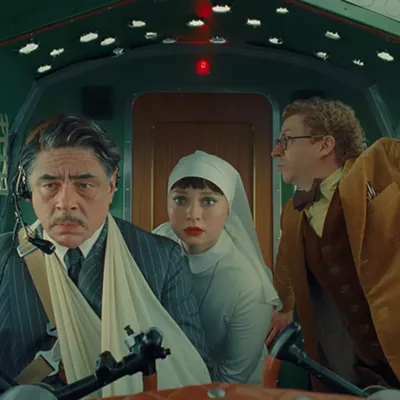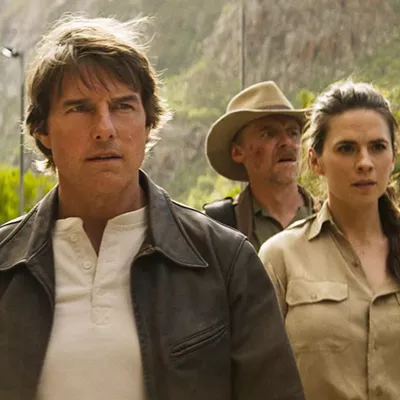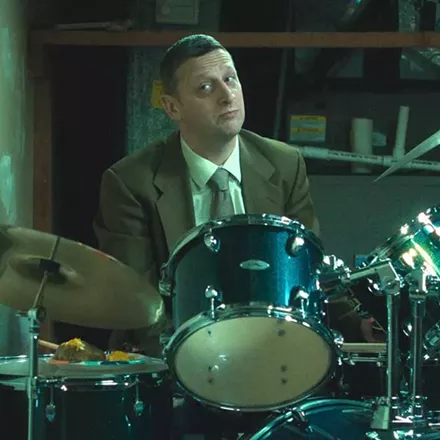Put Harrison Ford in front of a few journalists with a few questions, and in moments the rugged Indiana Jones and the swaggering Han Solo becomes a grump. He’s not mean or rude, but he doesn’t hide the fact that he’s not a fan of interviews. And he certainly doesn’t suffer foolish questions gladly. So it was a surprise when Ford seemed so relaxed when he sat in front of a few reporters recently to discuss his role in 42, the story of Jackie Robinson, who in 1947 became the first black baseball player to make it to the major leagues. Ford, 70, plays Branch Rickey, general manager of the Brooklyn Dodgers, who earlier in his career won the World Series with the St. Louis Cardinals. It was Rickey’s decision to break the color barrier by promoting Robinson.
INLANDER: Are you a baseball fan?
FORD: No. I’ve never followed baseball very much. I never followed sports as a kid. We moved to the suburbs when I was about 12 years old and I played maybe one and a half games of Little League. But the whole atmosphere of anxious parents and more anxious children was just too much for me.
How did you prepare to play Branch Rickey?
There was some audiotape available of him, and I studied all the photographs. Early on I had the idea that the film would be better served by a Branch Rickey lookalike than a Harrison Ford lookalike, so I invested in the process of trying to figure out what I should do and what I shouldn’t do, and how to achieve the look in the character. What helped more than anything else was [wearing] the fat suit, because it really did give me a sense of what it meant to maneuver at that size and what it would be like. Branch Rickey was around 65 at the time of the telling of this story, and I liked the opportunity of playing the younger man. That’s not gonna happen a lot any more.
What initially attracted you to the film?
I think the best movies are made not from a point of view that depends on your personal history, whether it’s the color of the skin or the politics that you’ve had or the place that you come from. The best movies are made from the point of view of an understanding of human nature, an understanding of history, an understanding of what motivates people, of what makes a good movie from an emotional place. I think this movie tends to all of those requirements. It’s a movie about the history of racial equality in the United States. There’s a kind of writing that I always try to avoid, which is, for convenience, what I call a talk story. It’s when you’re just talking about the story. What I always think is a better form of writing and a better form of filmmaking is to allow the audience to experience the story, to be emotionally involved in seeing and feeling and experiencing the story as it unfolds, rather than talking about it.
Have you gotten some actual feedback from test screenings?
The people I’ve talked to who have seen the film have taken away a visceral understanding that is greater than one normally has. And those are the people that will go forward in their lives and their experiences, and recognize that racism is something to be worked against, it’s something they don’t want their children exposed to, something they don’t want to see in their lives. They recognize both the truth in it and the undeniable evil of it.




















